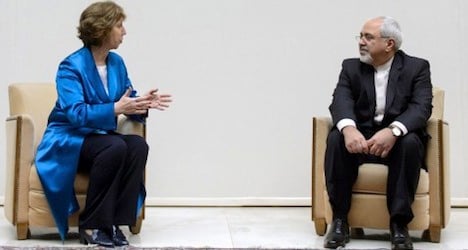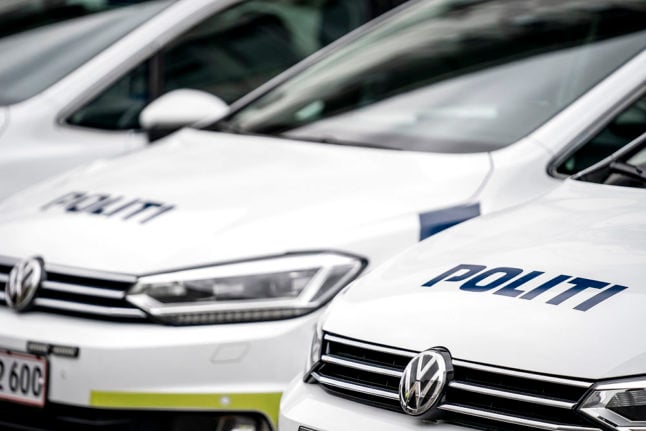The two-day meeting in the Swiss city ends a six-month hiatus over the Islamic republic's refusal to curb uranium enrichment in exchange for easing punishing international sanctions.
Foreign Minister Mohammad Javad Zarif was to present Iran's stance to the so-called P5+1 group of the United States, Britain, France, China and Russia plus Germany.
The proposal, entitled "Closing an Unnecessary Crisis, and Opening a New Horizon", contains three steps that could settle the long-running nuclear standoff "within a year", Zarif said Monday.
Zarif, who has said he hoped the Geneva talks would least sketch out a "roadmap" for further higher-level talks, did not did not go into details.
But he said the initial step could be achieved "within a month, or two, or even less".
Negotiators have however downplayed the chances of a major breakthrough, despite hopes raised since conservative Mahmoud Ahmadinejad wrapped up two four-year terms as Iran's president.
Rouhani, who took office in August, has promised transparency on the nuclear programme and engagement to eventually lift the trade embargo that is strangling Iran's economy by hitting oil exports and access to global banking.
But Iran's archfoe Israel has repeatedly warned the world not to fall for "sweet talk" from Rouhani, and Western negotiators have insisted they are not naive.
European Union foreign policy chief Catherine Ashton, who is chairing the talks, said she had "cautious optimism but a real sense of determination".
Officials said the talks, taking place at the UN's European base in Geneva, were to be conducted in English for the first time.
A senior US administration official said detail was the key, and noted that Washington's team included sanctions specialists.
"We are quite ready to move," the official told reporters in Geneva.
"But it depends what they put on the table," the official said.
"We are hopeful, but that has to be tested with concrete, verifiable actions."
Zarif admitted to difficulties in the negotiations, on hold since a round in April in Kazakhstan where Iran refused to curb some sensitive enrichment activities in exchange for a moderate relief of sanctions.
"The nuclear issue cannot be resolved in one session, as mistrust has been accumulated over years," he said.
"I am not pessimistic about the talks, but we need to see the good intentions and political will of the other side in action," he said.
Western powers and Israel suspect Iran is trying to develop the atomic bomb, a claim vehemently denied by Tehran which insists its nuclear programme is for peaceful purposes.
Iran currently has 6,774 kilogrammes of low-enriched uranium, and a lesser quantity of medium-enriched uranium.
The latter is of greatest concern for the West and Israel, which fear Tehran could divert some for further enrichment towards a level required for nuclear weapons.
Iran has already drawn its red lines for the talks, saying it will not accept any demand to suspend uranium enrichment or ship out stockpiles of purified material.
A first meeting between Zarif and his counterparts from the six powers took place last month on the sidelines of the UN General Assembly, accompanied by a landmark two-way meeting with US Secretary of State John Kerry.
After meeting Ashton in London on Sunday, Kerry said the window for diplomacy with Iran was "cracking open."
Shortly before the talks began, Israel— widely believed to be the Middle East's only nuclear armed state — warned against any "partial agreement".
"Iran believes it can get by with cosmetic concessions that would not significantly impede its path to developing nuclear weapons, concessions that could be reversed in weeks," Israel's security cabinet said.
Kerry underlined on Sunday that Washington meant what it said when it insisted it would never allow room for a nuclear-armed Iran.
"I believe firmly that no deal is better than a bad deal," he said.



 Please whitelist us to continue reading.
Please whitelist us to continue reading.
Member comments